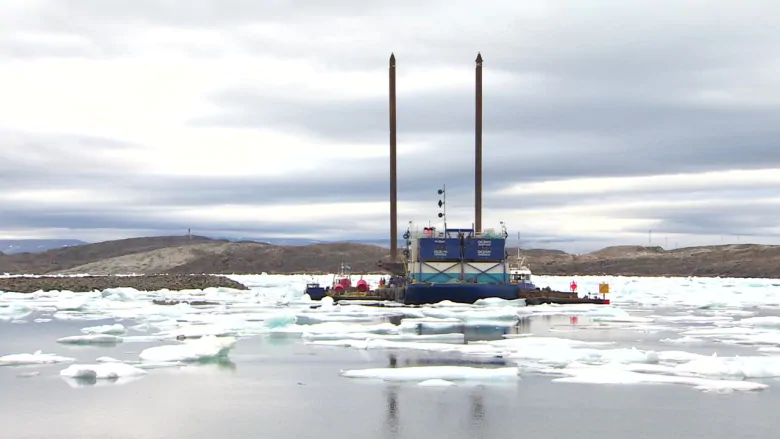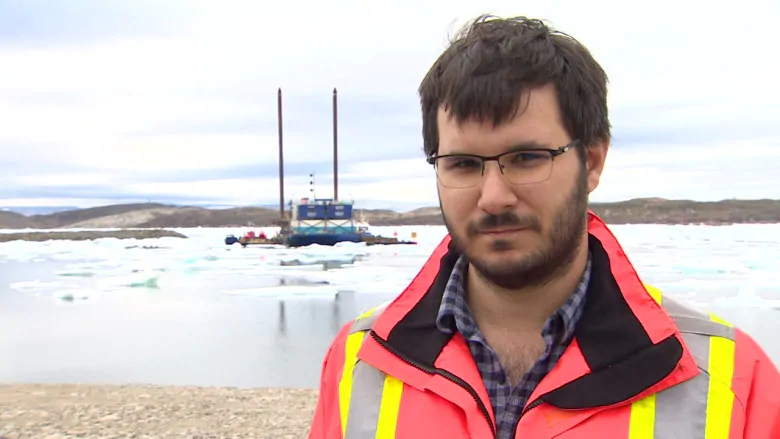Sea ice blocking shipment of materials into Iqaluit, northeastern Canada

Large chunks of sea ice floating in Frobisher Bay are holding up the transport of construction materials into Iqaluit, in northeastern Canada.
Continuous south winds have pushed masses of ice into the bay, hindering the movement of ships and the equipment and materials they contain. The ice jam is also causing delays to construction of Iqaluit’s deep sea port.
A dredging ship that’s part of the port’s construction was parked about a week ago and its crew is still waiting for the ice to give way.
Louis-Philippe Perron, project manager for Tower Arctic Ltd., the company building the port, said the ice is affecting dredging at the site. Dredging is the removal of sediments and other material from the bottom of a body of water.
“Initially it was only impacting our disposal site for the dredging of the works, but now it’s impacting the whole dredging works,” said Perron.
“It’s going to delay the dredging, which delays the construction of the big cells that need to be constructed after the dredging is done.”
Perron said if the ice holds them up, it will push back the completion of the project by a couple weeks. The company aims to finish the project by mid-September or early October 2020.

There is work that can be done while the dredging is stalled, said Perron. The team has been crushing material at the small craft harbour and plans to do more blasting.
“So we still have a lot of work to prepare and make material to be able to build the port,” he said.
‘Very hard to manoeuvre around ice’
The dredging ship isn’t the only craft affected by the ice.
A sealift carrying equipment and materials for the deep sea port, as well as construction and resupply materials for work in Iqaluit, is also trapped in the bay.
Jimmy Akavak, the director of marketing for Iqaluit-based NEAS, a marine transportation, packaging and container company, said the size of the barge makes it more difficult. He said the one trapped is about 100 feet long and up to 50 feet wide.
“So it is very hard to manoeuvre around ice and that’s the main problem right now. Just no room for any big vessel to carry cargo,” said Akavak.
The next sealift is set to arrive in Iqaluit on Friday, and another ship is scheduled to come in a few days after that.
If the ice doesn’t clear, those vessels will also have to wait.
Akavak said calling in the coast guard to clear a path with an icebreaker would be a last resort.
Right now the company is hoping the winds change direction and push the ice back out to sea.
Akavak said the company does not believe the ice will cause significant delays to sealifts to other communities.
With files from Jackie McKay
Related stories from around the North:
Canada: Remote community in Arctic Canada struggles to cope with barge cancellation, CBC News
China: China’s COSCO planning ‘several’ shipments along Northern Sea Route, The Independant Barents Observer
Finland: Finland chooses Kirkenes in Norway for new Arctic railway terminal, The Independent Barents Observer
Norway: Russia’s Novatek turns to Norway to ease Arctic LNG exports, The Independent Barents Observer
Russia: Struggling with evolution of Arctic freight, Soviet-era shipping company now near bankruptcy, The Independent Barents Observer
United States: World maritime body approves first Arctic ship routing measures, Radio Canada International



